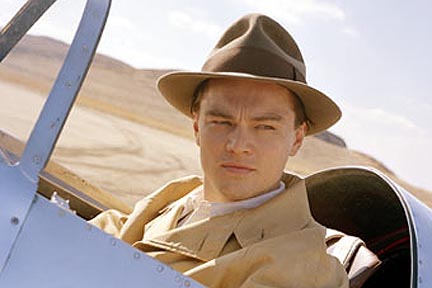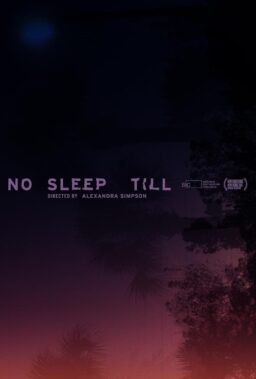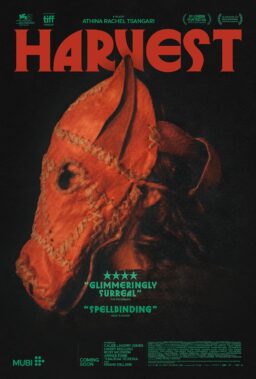Howard Hughes: Leonardo DiCaprio, Katharine Hepburn: Cate Blanchett, Ava Gardner: Kate Beckinsale, Noah Dietrich: John C. Reilly, Juan Trippe: Alec Baldwin, Sen. Brewster: Alan Alda, Professor Fitz: Ian Holm, Jack Frye: Danny Huston, Jean Harlow: Gwen Stefani, Errol Flynn: Jude Law, Johnny Meyer: Adam Scott, Glenn Odekirk: Matt Ross, Faith Domergue: Kelli Garner, Mrs. Hepburn: Frances Conroy, Robert Gross: Brent Spiner, Louis B. Mayer: Stanely DeSantis, Joseph Breen: Edward Herrmann
Miramax presents a film directed by Martin Scorsese. Written by John Logan. Running time: 166 minutes. Rated PG-13 (for thematic elements, sexual content, nudity, language and a crash sequence). Opening Saturday at local theaters.
The movie achieves the difficult feat of following two intersecting story arcs, one in which everything goes right for Hughes and the other in which everything goes wrong. Scorsese chronicled similar life patterns in “GoodFellas,” “Raging Bull,” “The King of Comedy,” “Casino,” actually even “The Last Temptation of Christ.” Leonardo DiCaprio is convincing in his transitions between these emotional weathers; playing madness is a notorious invitation to overact, but he shows Hughes contained, even trapped, within his secrets, able to put on a public act even when his private moments are desperate….
DiCaprio is nobody’s idea of what Hughes looked like (that would be a young Sam Shepard), but he vibrates with the reckless spirit of the man.
Read Ebert’s full review of “The Aviator“
Leonardo DiCaprio, actor and movie star, is in charge of making the moviefied Hughes feel human, and he succeeds. This is your standard biopic reinvented as a movie dream, a life broken up into bits of light (maybe the only way to render a life manageable) and sent streaming through a projector — a digitized life with a celluloid heart. — Stephanie Zacharek, Salon.com
If you’re thinking this is a story Martin Scorsese just might be able to do something with — oh, does he ever in “The Aviator.” But if you’re thinking that Hughes doesn’t sound like a role made for Leonardo DiCaprio, you’re as wrong as I was before seeing the film…. A magnificent DiCaprio fully captures Hughes’ drive and intensity yet also makes you see how, before he went fully over the brink, someone so impossible was also genuinely liked by so many. — Mike Clark, USA Today
There’s a top-of-the-line emptiness about the whole thing. And even though DiCaprio does his gimlet-eyed damnedest to own this movie, he’s more energetic than charismatic. He’s not Howard Hughes, whose heroin addiction, bisexuality, predatory taste for women, dereliction and paranoia are either nowhere to be found or cutified for Best Picture respectability. (His frenzied hand-washing, based on a lifelong fear of infection, is given full throttle, however.) He doesn’t even seem like a grown-up, despite his age. And that Texas accent seems to come and go. To be fair, DiCaprio awakens in the final, darker section…. — Desson Thomson, The Washington Post
…DiCaprio is “The Aviator”’s pivotal quantity—that is, if you buy him as a master of the universe-man of action, bedeviled by impulses. But the conscious contrast between today’s baby-faced, teen-voiced, toddler-men movie actors and the golden age’s grown-ups is unavoidable, and though DiCaprio is the same age here as Hughes was in 1934, he may not be convincing as a 30-year-old until he’s 50. When Hughes is swapping repartee with Hepburn (Cate Blanchett, who nails the vibe stunningly) during a Bringing Up Baby-ish nine rounds, it plays as if she’s interviewing him for an internship.
— Michael Atkinson, The Village Voice
Sometime between the drift and the drama Hughes locks himself in a screening room, strips off his clothes and begins a babblogue that unfortunately for both the actor and his director initially echoes a similar meltdown in Mr. Scorsese’s ”Taxi Driver.” Mr. DiCaprio tries hard to pull off a pantomime of madness, but neither he nor Mr. Scorsese taps into the pity and terror underlying the episode, even when the director throws a halo of light around the character’s head. Hughes died a skeletal drug addict, broken-off hypodermic needles embedded in his arms. He was a freak and an outcast and eventually a figure of public fun, which perhaps explains why Mr. Scorsese tends to play the character’s tics for light laughs, even when they don’t seem very funny. — Manohla Dargis, The New York Times
DiCaprio, in pomaded and severely parted black hair, has the smile and flashing eyes for Hughes’s more vaunting moments. Yet he portrays this blinkered egotist without displaying any narcissism of his own. He keeps a firm grip on the character’s inner terrors—his habit of receding into himself, his appalling torments and phantoms, his weirdly impersonal relations with women.
— David Denby, The New Yorker












